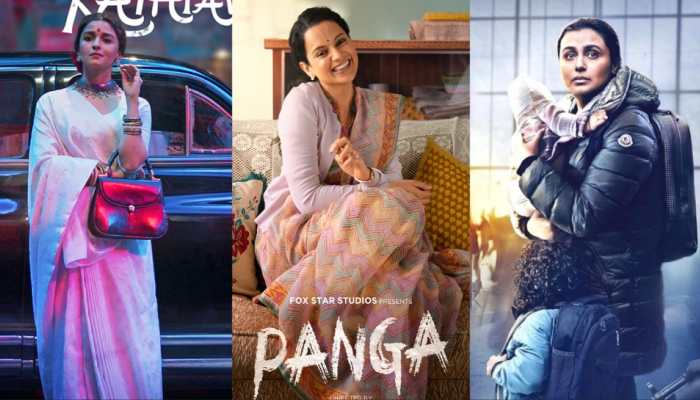Lok Sabha election 2019: All you need to know about the model code of conduct
Model code of conduct is a set of guidelines and instructions issued by the EC and it is mandatory for all political parties and candidates to follow the model code of conduct.
Trending Photos
) Photo: Facebook/ECI
Photo: Facebook/ECI The model code of conduct for Lok Sabha election 2019 came into force on Sunday (March 10) after the Election Commission (EC) announced the dates for General Election.
Model code of conduct is a set of guidelines and instructions issued by the EC and it is mandatory for all political parties and candidates to follow the model code of conduct.
What is the model code of conduct?
The EC lays down the model code of conduct with the consensus of political parties. The dos and don’ts laid down by the EC in Model code of conduct is to be followed in its letter and spirit by political parties, candidates and polling agents during the election procedure. The candidates and political parties are required to observe these guidelines on their overall conduct, including their speeches, rallies, public meetings and content meant for electoral purposes.
When was model code of conduct first introduced?
In 1960, EC had first introduced the Model code of conduct during the assembly elections in Kerala. The code, which was not very comprehensive, was circulated by the EC to all parties when simultaneous polls to the Lok Sabha and assemblies were held in several states in 1962. The EC had also directed the state governments to secure the acceptance of the code by the parties.
In 1967, the code was followed in the Lok Sabha and assembly elections. In 1968, meetings were held by the EC with all political parties at the state level and in the meetings the EC had said that the parties need to follow the Model code of conduct in order to ensure free and fair elections.
The code was then circulated in 1971-72 during the general election to the House of the people/state legislative assemblies.
In 1974 when elections were held in some states, the Model code of conduct was again circulated by the EC to the political parties in those states. In 1977, the code was again circulated to the political parties before the Lok Sabha poll.
In 1979, the code was changed by the EC in consultation with the political parties. The same year, EC added a new section placing restrictions on the “party in power” to prevent cases of abuse of a position of power to get an undue advantage over other parties and candidates.
In 1991, the EC code consolidated the Model code of conduct and it was re-issued in its present form.
Full coverage: Lok Sabha election 2019
In 2013, the EC was directed by the Supreme Court to include guidelines regarding election manifestos and this code was included by the EC for the 2014 Lok Sabha poll.
When is the code enforced?
The code comes into force as soon as the poll schedule is announced by the EC and it remains in force until the conclusion of the electoral process, as provided in the notification.
How does the EC enforces the model code of conduct?
It is the duty of EC to ensure that the code is followed by all political parties as part of its mandate to conduct free and fair elections under Article 324 of the Constitution.
In case of violation of Model code of conduct, the EC takes action against violators. The violations of code can be reported to the EC by anyone. The EC has joint task forces of enforcement agencies and flying squads to implement the Model code of conduct.
Can violations of Model code of conduct be punished by courts?
A party violating the Model code of conduct cannot be charged for violating a section of the code as it has no statutory backing. But the EC can file a case under relevant sections of the Indian Penal Code (IPC) or the Income Tax Act - only in extreme cases.
What are the important provisions of the model code of conduct?
The Model code of conduct has eight provisions dealing with general conduct, meetings, processions, polling day, polling booths, observers, the party in power, and election manifestos.
General conduct: Criticism of political parties must be limited to their policies and programmes, past record and work. The party/candidate must not indulge in activities such as (a) using caste and communal feelings to earn votes, (b) targeting candidates on the basis of unverified reports, (c) bribing or threatening of voters.
Meetings: It is mandatory for parties to inform the local police authorities about the venue and time of any meeting in order to give sufficient time to the police to make security arrangements.
Processions: If two or more candidates plan to move along the same route for campaigning, it is mandatory for them to establish contact with each other to ensure that the processions do not clash. The political parties are not allowed to carry and burn effigies representing members of other political parties.
Polling day: On the polling day, the model code of conduct mandates all authorised party workers to identity badges to party workers at the polling booth. The badge should not contain the party name, symbol or name of the candidate.
Polling booths: Only voters, and those with a valid pass from the Election Commission, will be allowed to enter polling booths.
Observers: The observers appointed by the Election Commission to hear out the complaints of candidates who may report problems regarding the conduct of the election.
Party in power: Certain restrictions were incorporated by the EC in model code of conduct in 1979, regulating the conduct of the party in power. The new restrictions barred ministers from combining official visits with election work or use of official machinery for campaigning. The party in power is also barred from advertising at the cost of the public exchequer or using official mass media for publicity on its achievements.
Election manifestos: In 2013, new guidelines were added in model code of conduct prohibiting parties from making promises which can influence the voters.
Live Tv







)
)
)
)
)
)
)
)
)
)
